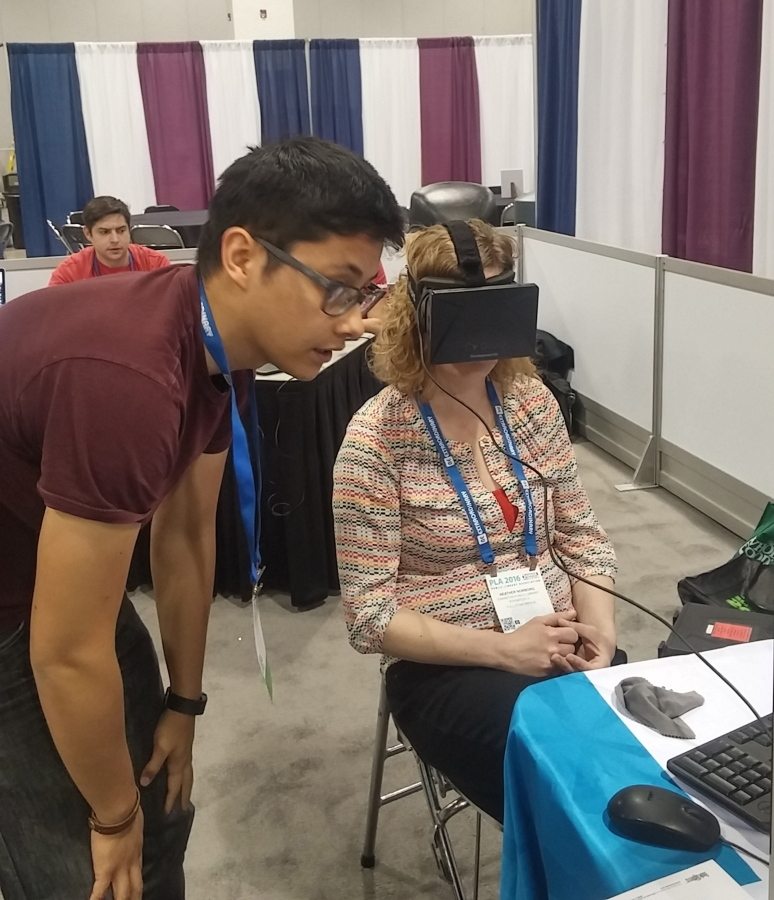DENVER — Fewer Americans are visiting libraries — which means they’re missing out on the changes at such institutions, according to results of a Pew Research Center survey released Thursday at the Public Library Association’s annual conference in Denver.
Pew has been asking American adults whether they visited a library in the past year. The first time, in 2012, 53 percent said yes. That has dropped steadily, to 44 percent last year.
The trend is worrying, but such numbers should not be the only way the importance of libraries is measured, said Vailey Oehlke, president of the Public Library Association, which works to strengthen public libraries and their staffs. She pointed, for example, to efforts by libraries across the country to help patrons earn high school diplomas or improve career skills.
“Public libraries are critical players in ensuring that our communities are healthy and successful and ensuring that the people living in the communities are living up to their potential,” Oehlke said in an interview.
Local Angle
The Fort Vancouver Regional Library District has seen a decline in physical visits, but an overall uptick in those using the library’s virtual services.
In 2015, the library had about 2.2 million physical visits, compared to about 2.9 million in 2014.
“The trend (to visit physically) is down, but if you look at how people are starting to use libraries in more of a virtual way, then it’s trending up,” said Lee Strehlow, the library’s human resources director.
Strehlow said more people are downloading electronic books and visiting the district’s website. The number of electronic checkouts more than doubled in recent years, with the library logging 448,550 electronic checkouts in 2015.
— Lauren Dake
Kristin Murdoch, who was visiting Denver’s main library Thursday, said she wasn’t surprised to hear that, according to the Pew survey, she was in the minority.
“I think people just don’t read as much,” she said. “I still prefer to hold a book, something tangible.”
Murdoch, a server at a nearby restaurant, does not have her own computer, so also uses computers at the library. And she borrows videos and music as well as books.
“You can get your hands on anything here,” she said.
But Pew found that many adults don’t know they can borrow e-books, study for high school equivalency degrees and take part in other programs at their libraries. Libraries across the country have been increasing offerings, in part to try to remain relevant as the municipal budgets on which they rely shrink. Pew, citing the Information Policy and Access Center at the University of Maryland, said 90 percent of public libraries have e-book lending programs. But Pew’s survey showed a third of adults didn’t know that.
Researchers interviewed a nationally representative sample of 2,752 adults by landline and cellphone. The margin of error was 2.1 percentage points.
Libraries can’t devote much of their budgets to public relations, but know they need to do more, said Denver City Librarian Michelle Jeske. After years of keeping the marketing budget at $25,000, the Denver library is spending $75,000 this year. Part of that will be spent on a survey to get more information about how the community views library services.
The Public Library Association conference is a chance for librarians to learn about their colleagues’ experiences with the latest technologies and programs, which go far beyond GED prep. In Colorado’s Arapahoe County, library users can test the Oculus Rift, Facebook’s virtual reality headset.




